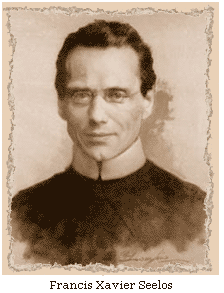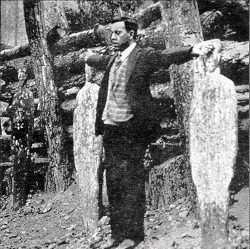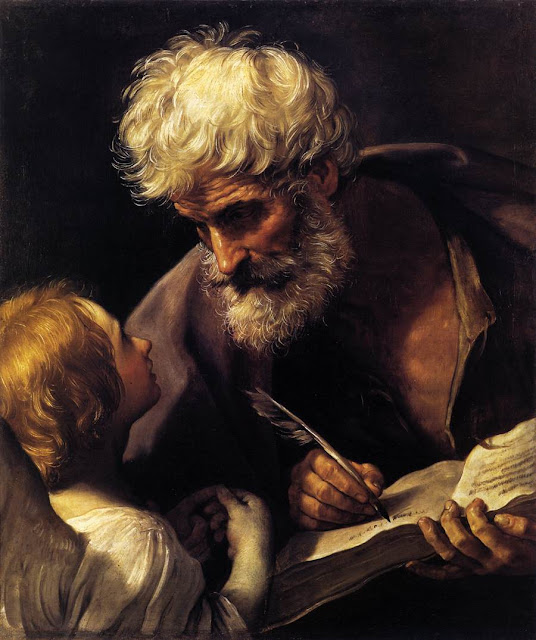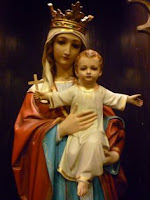
With the Solemnity of the Immaculate Conception yesterday and the Second Sunday of Advent today I am reposting The Office of Our Lady and encouraging its use among Anglicans and Catholics of Anglican identity. It is very much part of the contemplation of the four last things that should occupy our thoughts and meditations during the season of Advent ... and especially of the contemplation of Heaven -- to which we are each called by name -- Heaven which broke into our world through the Immaculate Conception of the Blessed Virgin Mary.
[Recently I read someone opine that there was no Anglican Little Office of the Blessed Virgin for the Ordinariates to use. At face value one could say such a thing, but it would not be the whole story. There are many little Offices of Our Lady of Anglican provenance. Should one take time to gather them together they would indeed form a kind of Anglican Little Office of the Blessed Virgin. By way of example, the following is "The Office of Our Lady" from Cambridge Offices and Orisons, 1921 arranged by Eric Milner-White and BTD Smith:]
THE OFFICE OF OUR LADY
V. O God, make speed to save us ;
R. O Lord, make haste to help us.
V. Glory be to the Father, and to the Son, and to the Holy Ghost ;
R. As it was in the beginning, is now, and ever shall be, world without end. Amen.
Alelluia.
HYMN.
O GLORIOUS Maid, exalted far
Beyond the light of burning star,
From him who made thee thou hast won
Grace to be Mother of his Son.
That which was lost in hapless Eve
Thy holy Scion did retrieve :
The tear-worn sons of Adam's race
Through thee have seen the heavenly place.
Thou wast the gate of heaven's high Lord,
The door through which the Light hath poured.
Christians rejoice, for through a Maid
To all mankind is life conveyed !
Amen.
[English Hymnal 215.]
Antiphon. The Holy Ghost shall come upon thee : and the power of the Most High shall overshadow thee.
MAGNIFICAT.
+ MY soul doth magnify the Lord : and my spirit hath rejoiced in God my Saviour.
For he hath regarded : the lowliness of his handmaiden.
For behold, from henceforth : all generations shall call me blessèd.
For he that is mighty hath magnified me : and holy is his Name.
And his mercy is on them that fear him : throughout all generations.
He hath shewed strength with his arm : he hath scattered the proud in the imagination of their hearts.
He hath put down the mighty from their seat : and hath exalted the humble and meek.
He hath filled the hungry with good things : and the rich he hath sent empty away.
He remembering his mercy hath hoplen his servant Israel : as he promised to our forefathers, Abraham and his seed, for ever.
Glory be to the Father, and to the Son, and to the Holy Ghost : As it was in the beginning, is now, and ever shall be, world without end. Amen.
Antiphon. The Holy Ghost shall come upon thee : and the power of the Most High shall overshadow thee.
CHAPTER. (REV. xii. 1.)
THERE appeard a great wonder in heaven ; a woman clothed with the sun, and the moon under her feet, and upon her head a crown of twelve stars.
R. Thanks be to God.
V. He brought me into the banqueting house : and his banner over me was love ;
R. He brought me into the banqueting house : and his banner over me was love.
V. He set the royal crown upon her head ;
R. And his banner over me was love.
V. Glory be to the Father, and to the Son, and to the Holy Ghost ;
R. He brought me into the banqueting house : and his banner over me was love.
V. Behold the handmaid of the Lord ;
R. Be it unto me according to thy Word.
V. The Lord be with you.
R. And with thy spirit.
Let us pray.
ALMIGHTY and everlasting God, who by the overshadowing of the Holy Ghost didst prepare the body and soul of the glorious Virgin-Mother Mary to be a dwelling-place for thy Son ; Grant that we who rejoice in her commemoration may at her tender intercession be kept unspottèd, and made a pure temple for his dwelling ; who liveth and reigneth with thee and the Holy Ghost, one God, in glory everlasting. Amen.
V. The Lord be with you ;
R. And with thy spirit.
V. Let us bless the Lord ;
R. Thanks be to God.











